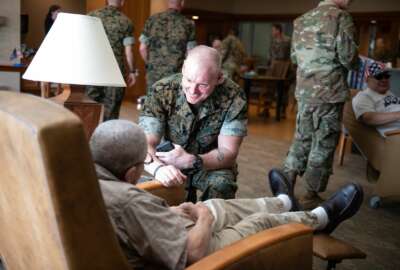
The Greatest Generation’s last test
For many members of the Greatest Generation, the battle against the coronavirus will be their last big test.
For many members of the Greatest Generation, the battle against the coronavirus will be their last big test.
Many won’t come out of it alive. Most are in their 90s or 100s. They grew up during the Great Depression — a time few of us can even imagine — and came of age in time to fight in or live through World War II. Now the face a pandemic whose favorite targets are the elderly. Those of us who were lucky enough to know and work with them — our parents and mentors at work and in some cases in life itself — are a lot better for it.
My late, great editor Suzanne Kubota had the craftsman’s knack for getting it just right. Her father, by the way, was a member of one of the most decorated Army combat teams in WW2. Suzanne could make the good even better. Whenever somebody trotted out the cliché, “They don’t make ‘em like that anymore,” Suzanne would, usually under her breath, add that “they didn’t make many even then.”
The exception, and there are always exceptions, is the Greatest Generation which includes my parents, uncles, aunts and so many people I worked with starting in my newspaper career. Most of my editors at The Washington Post (men and women) were WW2 vets. They were cool and collected. One, I learned from a fellow cub reporter, won the Silver Star at the Battle of the Bulge. Another walked with a noticeable limp for life after his ship was struck by a suicide plane off Okinawa. A riot downtown or a multiple shooting down the street didn’t phase them. They had been there, done that.
It won’t be long before, like the last civil war vet, they are all gone. Which takes me in a long, round-about way, to Anthony “Tony” Frank Ingrassia.
Tony died earlier this month at age 93. He was listed in Who’s Who and had been honored by them with a special award. Whenever we look back at people, even those we thought we knew well, we learn there was a lot more. I knew Tony because my beat was the people side of government and he was an established official at the Office of Personnel Management — one of the chief architects of the Civil Service Reform Act, and many, many other things.
When I think of Tony I think of an incredibly sharp guy, who appreciated his job and wanted to do it well. Always laughing and never, to me, serious in an I-am-so-important way. Which sometimes happens to people in Washington.
Tony was a civil servant’s civil servant. He was proud of what he did, and took it seriously. But almost always with a grin. Whether you ever actually met him or not, I hope for your sake you knew somebody like him. And while rare birds, there were a lot like that from the Greatest Generation.
Like many grandparents, one of his favorite legacies would be his grandchildren — he had 26! Testimonials for people like Tony never get it completely right. They can’t. But Laura, one of his daughters, came pretty close when she said, “he was the kindest person I ever knew.”
That, plus lots more. But that’ll do. Nice job Tony!
Nearly Useless Factoid
By Amelia Brust
The Poison Garden at Alnwick Gardens in England has plants that are so dangerous that visitors are prohibited from smelling them, although some have reportedly fainted from the toxic fumes. The garden also plants cannabis, coco and opium plants as part of its drug education program.
Source: The Alnwick Garden
Copyright © 2025 Federal News Network. All rights reserved. This website is not intended for users located within the European Economic Area.
Mike Causey is senior correspondent for Federal News Network and writes his daily Federal Report column on federal employees’ pay, benefits and retirement.
Follow @mcauseyWFED




